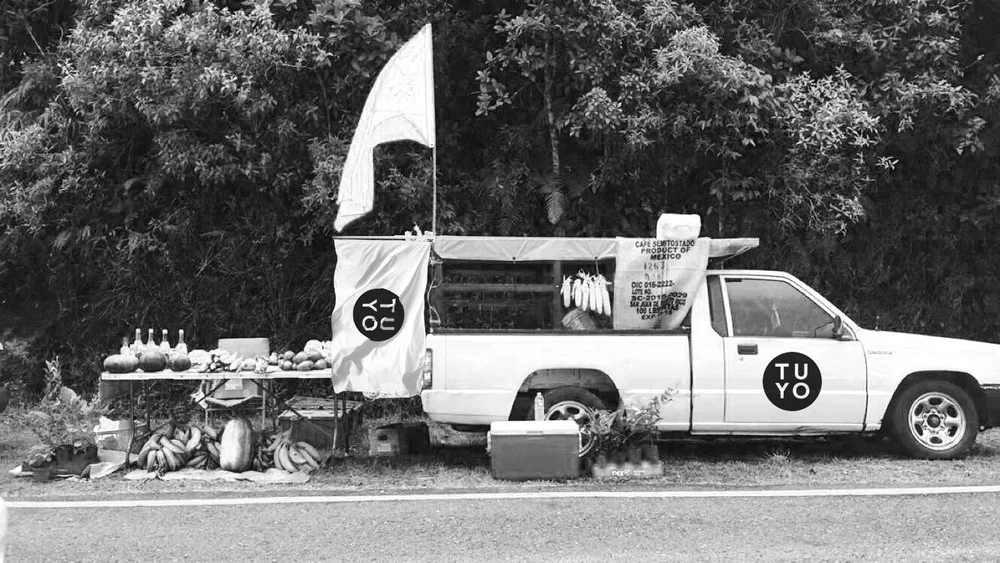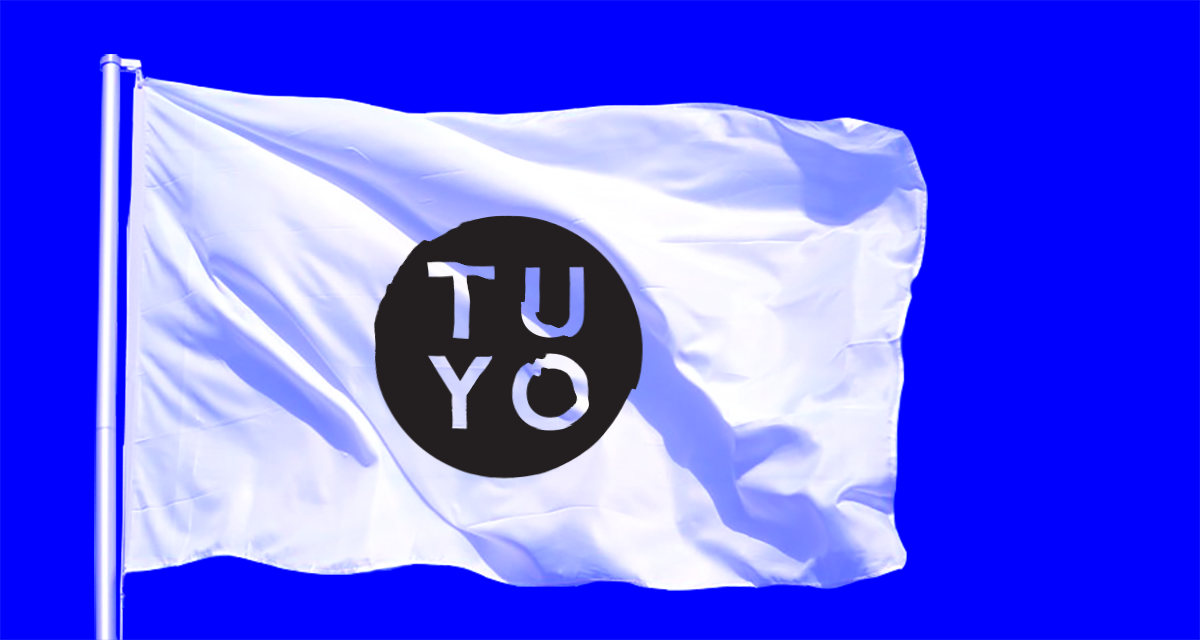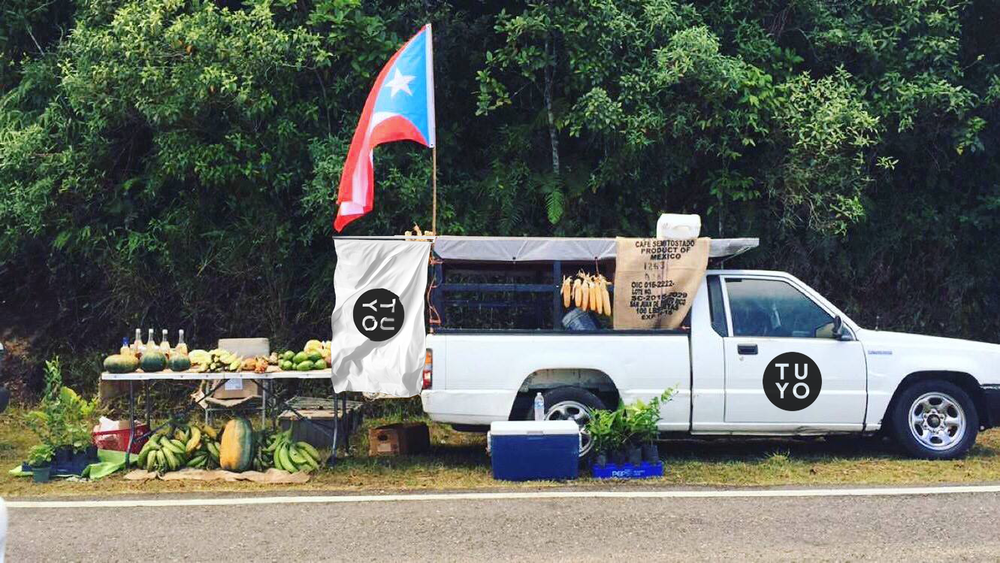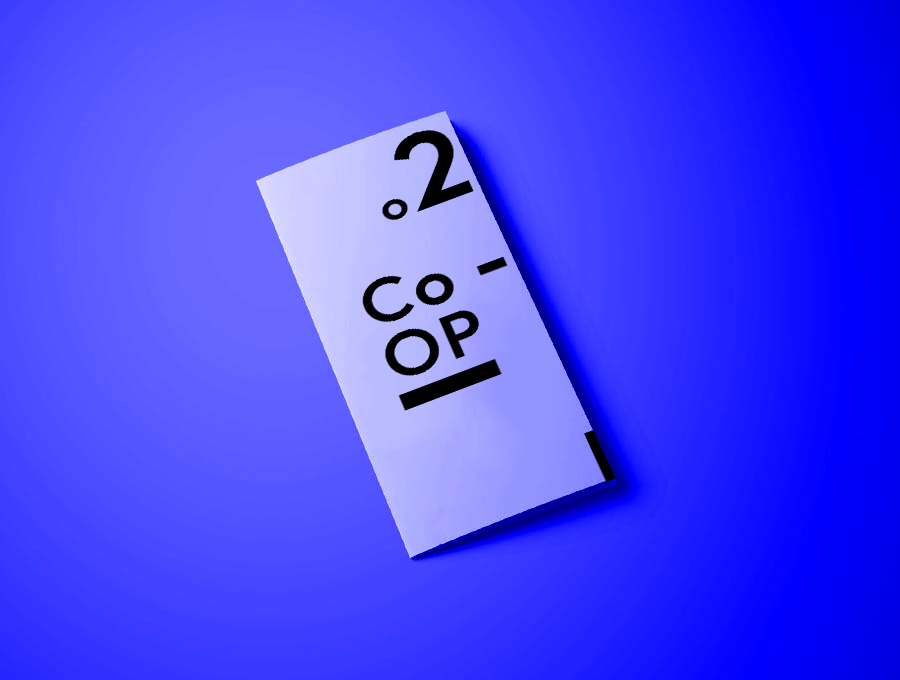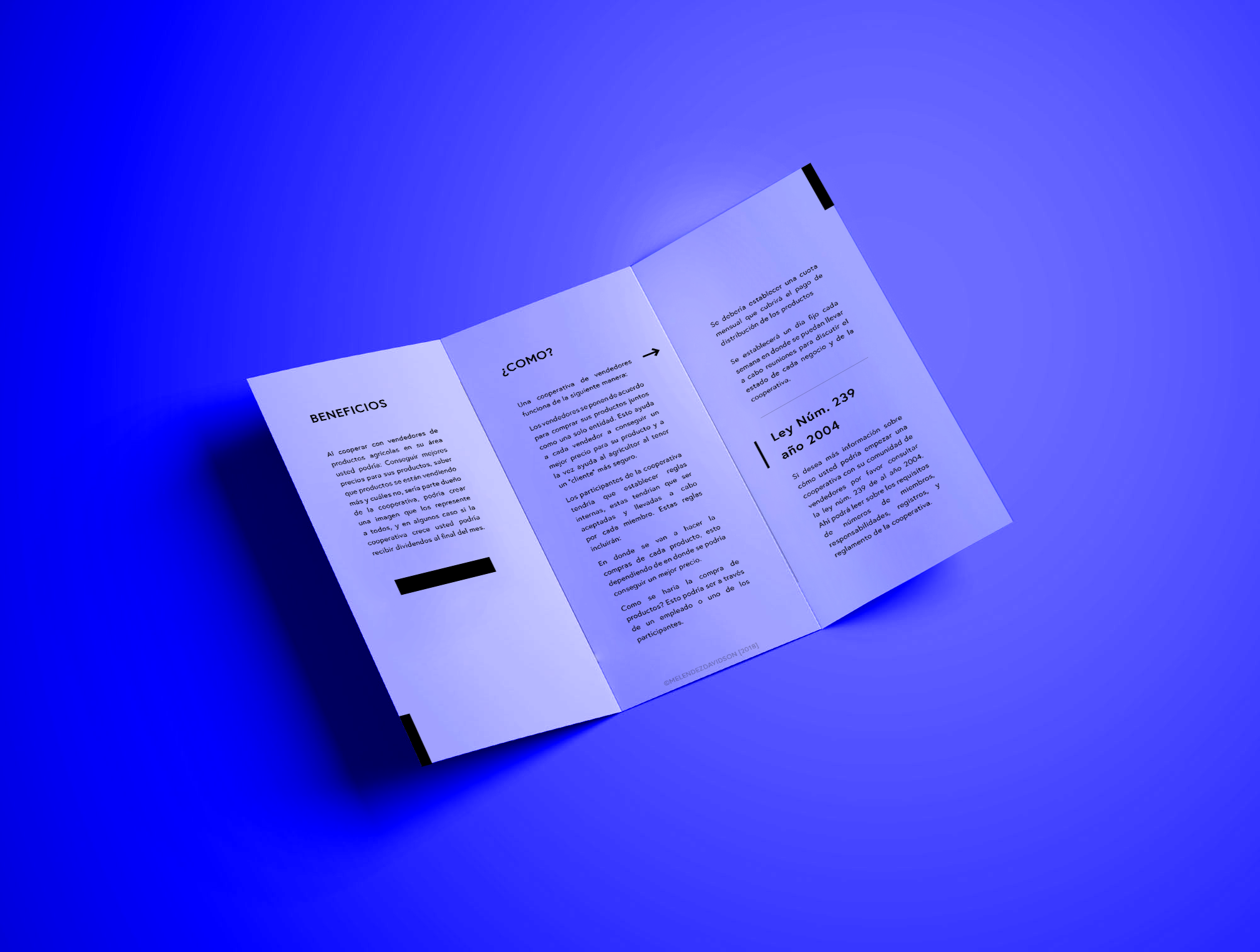c. 2017- 2018
>>Big Idea<<
Studying the economic crisis in Puerto Rico I have seen a post-hurricane opportunity to aid the Island’s economy by creating platforms for the formalization and sustainability of post-hurricane informal businesses in specific markets (tbd).
>>Context<<
Puerto Rico is currently passing through one of the worst times in its history. As seen recently in multiple news media outlets, the Island Territory was devastated by the category 5 hurricane Maria. The natural disaster caused an unprecedented amount of damage both to the infrastructure and the locals’ morale. It left the island's inhabitants without access to power, running water or communication for weeks, creating a “new-normal”. Although unfortunate, Maria was not all to blame, the island's infrastructure was on the verge of collapse previous to the hurricane. For the past decade, the territory had been suffering through a substantial economic crisis. Leaving Puerto Rico with a growing national debt of $73 Billion dollars. And with no money to spare, no investments can be made on the island’s infrastructure. Due to Puerto Rico’s official tittle as a Commonwealth (not a state or a colony) of the United States of American, it cannot file for bankruptcy, leaving the island and its inhabitants exposed to vulture funds.
“This is an island surrounded by water, big water, ocean water.”
“Billions of dollars in debt to Wall Street and the Banks which, sadly, must be dealt with.”
Donald Trump (POTUS)
Experts in various sectors have researched “how exactly did Puerto Rico get to this stage?”. Yet the exact root cause of Puerto Rico’s economic collapse can’t be traced to a specific source. The 2012 Federal Reserve Bank of New York’s released a report on the island’s economic situation (“Report on the competitiveness of Puerto Rico’ Economy”) and included recommendations for how to spark change in the declining economy. As stated in the report one of the barriers for the island to prosper is its lack of competitiveness in the global market partially due to a 100-year-old American cabotage law, The Jones Act. This report by and large has become the backbone for advocacy against the Jones Act by the Puerto Rican population. Often blaming solely the Jones Act for the Island’s Economic collapse.
>>Process<<
This report also sparked my interest in the law. I began to develop speculative propositions on how to avoid the law and or to get rid of the law. My investigation led me to talk with and interview stakeholders and experts in the American maritime industry, public policy, military and security sectors. From shipyard foremen and maritime naval strategist to Crowley Maritime employee (the maritime company which controls a majority of imports and exports to and from Puerto Rico). After a 5-month investigation period I realized through an interview with the owner of one of the biggest American maritime companies that the Jones Act was not going to be revoked as many individuals had invested billions of dollars for it to remain in place. After this interview I realized that devoting my efforts into the dissolution of the Jones Act (which is also protecting half a million American Jobs) was not the correct approach. I realized that understanding the real effects of messy policy was a project in of itself, and which would could or could not affect the economic crisis in its end, I was straying away from my final goal which was to aid those in need, to aid the individuals who had been through a decade of an economic crisis, who had just recently survived a category 5 hurricane.
Hurricane Maria wreaked havoc in the island. Leaving up to 60% of the Island inhabitants indeterminately unemployed, now people are doing anything they can to survive, to make a living. This economic necessity has sparked a long-lost sense of ingenuity and entrepreneurship. After my recent visit to the Island, I saw Puerto Rican flags taking over public places standing as symbols of solidarity, blue FEMA tarps being utilized to sprout pop-up stores, previous fruit stands now acting as candy stores, fallen down telephone poles as Christmas trees, and a large rise in the number of informal street vendors. Previously it was reported that 1/3rd of the Island’s economy was composed of the informal sector. This meaning 1/3rd of the economy which is not taxed, 1/3rd which is not aiding the economy of the Island as a whole.
>>Role as a Designer<<
I interviewed a small pool of Puerto Rican locals, asking them what would their ideal future look like. Expectedly a lot of the answers related to economic prosperity, yet to my surprise they spoke of a prosperity fueled by a national economic uprising. Realizing that this hurricane has created a moment of exception where the informal sectors has almost tripled, I believe the national drive towards prosperity must be fostered by aiding the growth of the informal business sector. I believe the tools and skills of a design practice can act as a catalyst for economic change. A catalyst to aid Puerto Ricans change the course of what has been their normal for the past decade.
Bringing forth a better-normal.

